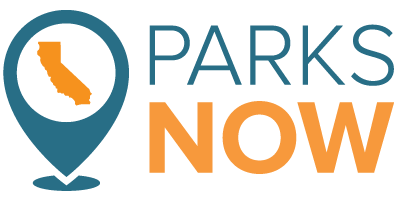In June, voters passed Proposition 68, a $4.1 billion bond that will help to ensure every Californian has access to safe drinking water and safe parks, particularly in low-income, underserved communities. The most progressive environmental funding measure in state history, Prop. 68’s passage shows that voters want to address critical parks, water, and natural resource needs in long-neglected communities.
With funding from Prop. 68, cities and counties that historically diverted dollars to other pressing community needs now have the opportunity to invest in their parks and water systems like never before. In July, the governor and state legislature approved a state budget that allows state agencies to begin disbursing 25 percent of the bond funds.
Prop. 68 addresses many of the founding principles of Parks Now, the diverse, 50-member coalition that my organization proudly supports. Parks Now has been raising awareness of the barriers to parks in California since 2015. We are especially thrilled to see funding guidelines in the bond measure that prioritize building local parks in the areas that lack them most, improving access to public lands, and creating more low-cost places to stay overnight on the coast.
But we urgently need to set the right precedent during this initial year of spending. Our work did not end with the passage of Prop. 68 – the real win requires that this transformative funding reach the communities that need it most, and that the money be invested effectively and responsibly in ways that reflect community input.
As public agencies prepare to administer funding, they must listen to communities classified as disadvantaged based on factors like high rates of poverty, and exposure to pollution as well as low levels of unemployment and education. Thoughtfully guided by the communities affected, these Prop. 68 dollars have immense potential to help disadvantaged communities invest in water and parks infrastructure in ways that improve the well-being and health of residents. Decisions about what to build should not come from the top down but instead
emerge from sincere conversations with the people who will use these parks. They know whether bike trails, baseball fields, barbecue pits, or butterfly gardens will best serve the neighborhood.
We will work to make sure local governments, nonprofit groups, and others awarded money for projects under Prop. 68 prioritize access in their proposals. Right now millions of Californians have little or no real access to parks. Prop. 68 funds should address factors that keep people from enjoying parks and open space, such as cost, transportation, and lack of information. Otherwise, this much-needed green infrastructure may be out of reach of the communities voters prioritized when they passed Prop. 68. We must put parks within walking distance of everyone and also connect people and parks via bike lane, bus, train, or shuttle.
Prop. 68 will help pay for new, expanded, and refurbished parks. The first allocation of $440 million for the development of local park space must be spent in neighborhoods where children cannot already walk safely to a swing set, basketball court, soccer field, or wooded trail. The state agencies charged with overseeing how Prop. 68 dollars are spent must give top priority to communities and neighborhoods lacking the amenities and access to nature that encourage exercise, relaxation, and connection.
Californians committed to something important when they passed Prop. 68, creating a rare and significant opportunity to prioritize health and the environment in the neediest communities. But to fulfill that great promise, we must ask this question at every step: Is this funding creating more equitable outcomes and access for our most vulnerable and park-poor communities? The health of our state depends upon making sure the answer is “yes.”
Orson Aguilar is president of The Greenlining Institute, one of 50 member organizations that make up Parks Now.

